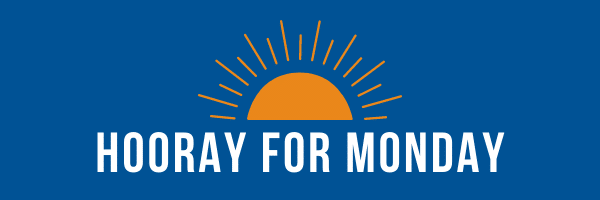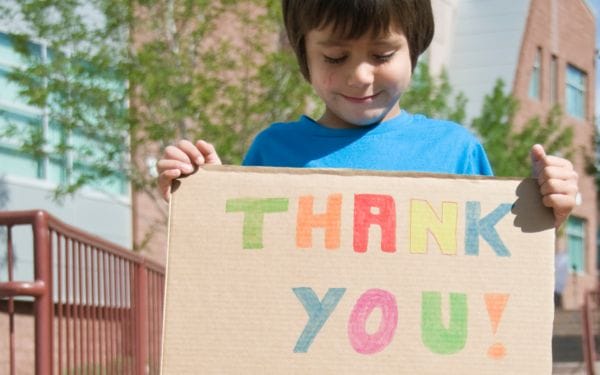By Aleta Margolis, Founder and President, Center for Inspired Teaching
Hooray for Monday is a new blog series we’ll be posting each week with questions, ideas, reflections, and actions we can all take to remodel the school experience for students.

This weekend I celebrated with my dear friend, mentor, and former middle and high school teacher, Judy White, as she marked a milestone birthday. During the course of a nearly three hour zoom call, Judy’s friends, former students, and family members voiced their love, shouted and sang birthday wishes, and expressed their gratitude and thanks. This past week I also took some online yoga and dance classes. At the end of each class, along with the other students, I unmuted myself and said ‘Thank you!’ to the teacher.
These experiences got me thinking about the power, and importance, of saying thank you to teachers.
Expressing appreciation for another person is a form of feedback, particularly when the thanks are specific. “Thank you for reaching out to that family about how to access tech support, I heard they called right away,” is a way of saying, “I see you. I acknowledge the effort you’re putting in to go above and beyond in this work. You matter.”
Such recognition compels us to keep doing good and giving such feedback feels good. The myriad benefits of gratitude for both the thank-er and the thank-ee have been scientifically documented. Expressing thanks strengthens relationships, improves physical and psychological health, enhances empathy and reduces aggression, helps us sleep better, improves self-esteem and fosters resilience.

In our current context, what might saying “thank you” look like in action?
School leaders: How would your week change if you made a commitment to say thank you, personally, to every one of the educators in your school? What would you look for during staff meetings or professional development sessions? What would you focus on when you sit in (virtually or in person) on your teachers’ classes? How would you track the anecdotes and data that point to the successes of each teacher? Would you thank teachers only for their successes, or would you also thank them for the times they stepped outside their comfort zones and tried something unfamiliar, regardless of the outcome? Would you thank them for the times they handled dropped internet connections or frustrated students with grace?
Teachers: If you were to make a commitment to yourself to say thank you to each of your students on a regular basis (daily, weekly), how might that affect your attention and focus during class? Would you focus on the contributions each student makes to the group, even those students who don’t always contribute positively? Would you look a little bit harder for something worth appreciating in each student’s participation?
Parents: Consider asking your children, “If you made a commitment to yourself to say thank you to your teacher after every class, where would you focus your attention during class? Would you try and figure out what the teacher might have done to prepare? Would you wonder if they had customized the lesson based on your interests or the interests of your classmates? Would you think about which aspects of the lesson resonated with you the most, so you could let the teacher know after class?”
At a time when it’s easy to feel dismayed by the state of the world and our complicated place within it, we could all use more “thank yous.”
I’ll start: Thank you for the work you do each day.
